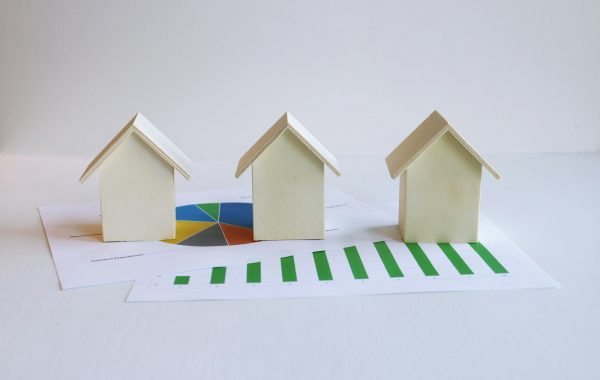
Understanding Ghana Rent Control Laws: What Every Tenant and Landlord Should Know
represent one of the most misunderstood aspects of the country’s rental market, with 80-90% of landlords routinely violating basic legal requirements while tenants remain unaware of their fundamental rights. Despite comprehensive protections established over six decades ago, the disconnect between law and practice has created a system where exploitation thrives and legal compliance becomes the exception rather than the rule.
What Are the Current Ghana Rent Control Laws?
Ghana’s rental framework operates under two primary statutes: the Rent Act 1963 (Act 220) and the Rent Control Law 1986 (PNDCL 138). These laws establish clear tenant protections, including a maximum six-month advance rent limit for long-term tenancies and strict eviction procedures requiring court orders.
The 1963 Act specifically prohibits landlords from demanding more than six months’ advance rent as a tenancy condition, with violations carrying criminal penalties up to GH¢6,000 or two years imprisonment. Yet market research reveals the average Ghanaian tenant pays 1.93 years upfront—nearly four times the legal maximum.
How Does the Rent Control Department Actually Work?
The Ghana Rent Control Department underwent historic transformation in September 2024 with the launch of a comprehensive digital platform at rentcontrol.mwh.gov.gh. This modernization digitized 15 offices across 11 regions, enabling online property registration, complaint filing, and dispute resolution for the first time.
Citizens can now access services remotely through Ghana Card integration, eliminating previous weeks-long delays for 24-48 hour online responses. However, the department continues operating with severe resource constraints, including just two vehicles nationwide for inspection and enforcement duties.
What Rights Do Tenants Actually Have Under Ghana Rent Control Laws?
Tenants possess substantial legal protections beyond advance rent limits. Comprehensive eviction safeguards require proper legal procedures, with valid grounds including non-payment after one month default, lease violations, or landlord personal use requiring six months’ notice.
The law prohibits self-help evictions like changing locks or removing belongings, with violations carrying penalties up to 200 penalty units or six months imprisonment. Rent increases require mandatory Rent Control Department approval, and tenants cannot be evicted for refusing unauthorized increases.
The National Rental Assistance Scheme offers government-backed advance rent loans at 12% interest rates for qualified applicants in Greater Accra, Ashanti, Western, Eastern, and Bono East regions.
What Are Landlords’ Legal Obligations?
Property owners face comprehensive compliance requirements often ignored due to weak enforcement. Registration mandates require all residential lease filing with Rent and Housing Committees within 14 days, with failure preventing rent collection rights and carrying potential imprisonment.
Maintenance duties demand landlords provide habitable conditions including structural soundness, adequate ventilation, and basic amenities access. Eviction procedures require strict legal compliance through written notice, Form 7 applications, official investigations, and court hearings.
Why Do Market Practices Violate the Law So Frequently?
Ghana’s housing deficit of 1.8 million units creates fundamental market imbalance empowering landlords while constraining tenant mobility. Annual housing production of 40,000 units falls drastically short of the needed 200,000, forcing acceptance of illegal rental terms.
Premium areas like East Legon routinely demand 2-3 years advance rent plus agent fees, while enforcement remains virtually nonexistent. The Rent Control Department’s resource constraints and institutional weaknesses enable continued violations despite criminal penalties.
What Government Reforms Are Coming?
Ghana’s government launched ambitious housing reforms in 2024-2025, allocating GH¢13.9 billion for the “Big Push” infrastructure program. The proposed Rent Bill—stalled in Parliament since March 2023—would introduce monthly payment options and transform the Rent Control Department into an empowered Ghana Rent Authority.
How Eden Heights Sets the Gold Standard
Eden Heights exemplifies full legal compliance in Ghana’s rental market, implementing transparent lease agreements that respect six-month advance rent limits while maintaining world-class property standards. Located behind West Hills Mall, our luxury development demonstrates how premium housing can operate within legal frameworks while delivering exceptional tenant experiences.
Our on-site management ensures prompt maintenance responses, proper eviction procedures when necessary, and complete Rent Control Department registration compliance. This approach protects both tenants and investors while contributing to market normalization.
Understanding Ghana rent control laws remains essential for navigating the country’s complex rental landscape, whether you’re seeking premium accommodation or investment opportunities that prioritize legal compliance and tenant protection.
Ready to experience legal compliance without compromising luxury? Contact Eden Heights today for transparent, law-abiding rental solutions that set the standard for Ghana’s evolving rental market.


